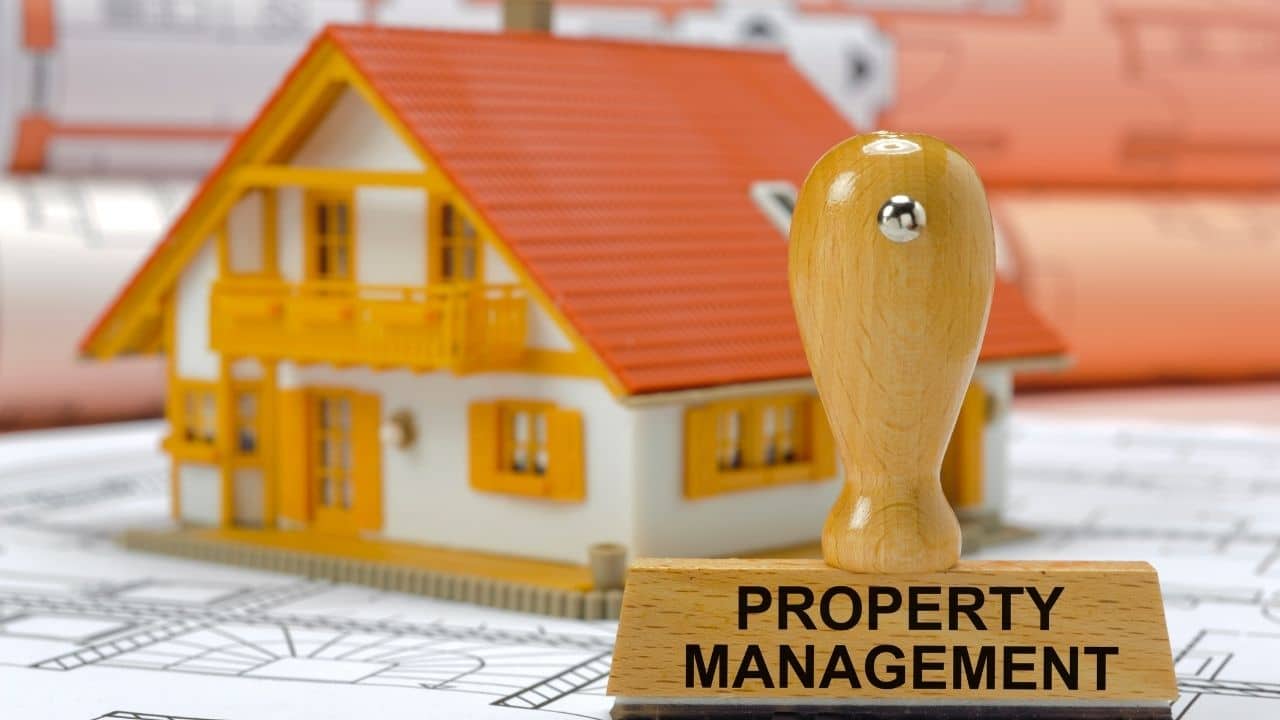“It’s time to start my own property management business.” You’ve said to yourself. However, there are a lot of things to do, learn, and check for. It may seem easy to do especially if you’ve worked as a property manager before but there’s a lot of work to be done.
Property management is a business that involves managing properties and people such as landlords, tenants, and lots more. And it comes with its own risks and challenges.
For those who can comfortably manage people and properties, this can be a very good career option.
Regardless, of whether you can comfortably manage people and properties or not, the truth is, that you are here because you want to start a property management business.
So, let’s get started!
What Is Property Management?
Property management is the overseeing of one or multiple properties – residents, student housing, commercial buildings, or industrial buildings.
According to Wikipedia, it is the operation, control, maintenance, and oversight of real estate and physical property. It is also the management of personal property, equipment, tooling, and physical capital assets that are acquired and used to build, repair, and maintain end item deliverables.
The owner and manager can be one person. Additionally, a real estate investor can decide to hire a property management company to oversee all of his property investments.
Who Is a Property Manager?
A property manager, also known as an estate manager is a person who manages, oversees and operates a real estate property when the owner is unable to do so.
A property manager has a primary responsibility to the landlord or property owner and a secondary responsibility to the company.
Similar to real estate managers and community association managers, property managers operate the business of property management and must be licensed for the profession.
Property Manager Roles and Responsibilities
Generally, property managers oversee and manage buildings and other real estate properties for their owners. Here are their other functions.
- They handle everything about the rent of a building. Property managers are responsible for dealing with rent issues, collecting rent, adjusting, and increasing the rent if need be.
- They are responsible for searching for new tenants or buyers for a building. If there are vacancies, they advertise the space and meet with potential tenants or buyers.
- Property managers maintain the financial records of a building and manage its budget. They keep thorough financial records of the building and operate within the specified budget for a building.
- Property managers are responsible for keeping the property in good condition. They conduct routine maintenance, repairs, and updating of facilities. Similarly, when there’s a need for renovation, they hire someone to do the job.
- They assess tenants who want to live in the house by running background checks on their employment and credit card status.
If this seems like something you can do, then you are on your way to becoming a very good property manager.
LEARN Real Estate Business: A Definitive Guide for Beginners (+ How to start tips)
How to Become a Property Manager?
If you’ve decided to enter into the property management industry, the processes are a tad easy.
Firstly, to get the best of opportunities, you need to get a degree in either business administration or real estate or any relevant field as stated by the Bureau of Labor Statistics (BLS).
Afterward, you need to get a license. Most states require you to get a license so check to see if your state is one of them.
Next, since you’re just starting out, you’d have to start as an entry-level employee and work your way towards the top.
Subsequently, you’d learn everything about property management and make valuable connections that would help you when you eventually start your own property management company.
Property Management Company Requirements
Before you can work at a property management company, there are some skills you must possess. This is due to the nature of the job. And sharpening these skills gets you to the top of the ladder quickly.
- Ability to be well organized
- Knowing how to connect and empathize with people
- Ability to be creative under urgent circumstances
- Ability to communicate with potential buyers, and residents
- Strong customer service skills
- Knowing how to create good working relationships.
- Must have basic knowledge of local, state, and federal housing laws.
- Financial reporting
- Facilities Management
Is Property Management Business Profitable?
Yes. Property management is a very profitable business. In fact, according to PayScale, the national average salary for property managers is $50,436/year. For higher experienced property managers, they earn $59k per year. While an entry-level property manager with less than 1-year experience can expect to earn an average of $41,059.
LEARN CUSTOMER RELATIONSHIP MANAGEMENT (CRM): Definition, Tools, and Importance TO HELP YOUR BUSINESS GROW.
How to Start a Property Management Business
Starting a property management business is similar to starting any other commercial business. As long as you follow the right procedures, you are definitely on the right track.
So, here are the steps to start a property management company.
1. Draft a Business Plan
Having a good business plan can help you make better decisions. Take some time out, stay focused, and think about what you want your business to be like and what exactly you intend to do.
Consider your long-term and short-term goals, what kind of services you intend to render, how to handle maintenance, how to hire a team, and how to structure your team. Answering these questions will give you a clearer view of what you want to do.
Or
Let us do the thinking for you. There are several other things you have to focus on doing to get your property management company up and running. Hence, you don’t have so much time to spend on drafting a business plan.
You can choose any from our catalog of business plans designed for your business to succeed. These plans were put together by experts in business management and all factors have been put into consideration including market research and analysis.
So, waste no more time, click on the button below to get started with it.
2. Brand your business
After you have drafted a business plan, the next step is to brand your property management company. This means that you have to come up with a business name, logo, and business card.
More so, it’s your business name that your customers will remember, and will be used to carry out transactions. So, when thinking of a business name, be sure to create something clear, simple, and unique to you.
Resist the urge to make it mysterious, that it’s only you that it makes sense to. If your customers find it hard to understand, remember or pronounce, that’s bad for your business.
3. Determine the Legal structure of your business
The next thing is to establish a legal entity for your business. This means that you have to determine what type of legal entity you want to do business as. This will determine the taxes you’ll have to pay, investment properties, and paperwork to file.
There are four types of legal structures for a business. They are:
- Sole Proprietorship: This means that you are responsible for your business profits and debts. It is the most basic business structure.
- Corporation: This is entirely different from the owners. corporations can own properties and are held accountable to pay taxes.
- Partnership: A partnership is a shared responsibility between two or more people who are liable for a business
- Limited Liability Company(LLC): This structure allows owners to limit personal liability. However, they still get to pay taxes and enjoy other benefits.
Generally, most property management companies operate as a Limited Liability Corporation (LLC) or an incorporated business (S or C-Corporation). And you can decide by going to your state’s official site; you’ll find information there. Or you can hire an attorney to do it for you.
FIND OUT WHICH Business Model: Definitions, Examples, and Types IS SUITABLE FOR YOUR BUSINESS
4. Obtain a License
Not all states require a license for property managers. However, before you set up your property management company, make sure to check if your state requires a license. If they do, ensure you have the license to practice in your state.
5. Organize your Finances
The next major part of starting a property management business is your finances. You need to consider your revenue and expenses.
Now, to properly do that, you need to set up your property accounting. Keep track of your owner’s properties, as well as money coming in and going out. Money coming in – revenue can be from rent or management fees while money going out is from expenses made on the property.
Keep your records monthly, quarterly, and yearly. This will enable you to understand if you’re making more profits than losses or vice versa. Additionally, it’ll help you set more realistic revenue goals.
6. Set up your office and website
Just like every other business, you need a place where you can operate from. So, get a good place where you can meet with your clients, discuss properties, respond to emails, and receive uninterrupted phone calls.
Oftentimes, most property managers choose to work from home to cut expenses. And as soon as the business starts growing and expanding, they can hire staff and rent a commercial space to serve as the office.
Whichever way, set up your office with equipment and stationery designed to make your work easier.
Also, build a website for your property management business. In this time and age, the internet is the go-to for anything. A lot of people prefer to go online to search for property managers around them, so you would want to be part of the team.
Ensure that your website can be used by both you and your clients. It makes your work easier for you.
Additionally, employ the use of the best SEO (search engine optimization) practices to make your website more visible and easily discovered by your potential customers.
7. Create a marketing plan
Well done for getting to this point in this article, you’re halfway to setting up that successful property management company you’ve always wanted. Moving forward, the next step is to create a marketing plan.
You need to understand that customers wouldn’t just lose their way and find themselves at your office. You need to go in search of them and lure them to you. What other way is there to do that than by marketing?
As a startup, the traditional method of advertising which include word of mouth and referral can be good for marketing your business. However, as you grow, you’d need to reach a larger audience.
So you can hire a digital agency to advertise your business everywhere including on all social media platforms.
Also, you can use paid ads on Google to increase your chances of getting new clients.
AS A STARTUP, LEARN HOW A Business Cycle WORKS
8. Set your pricing
Just like every business, you need to determine your pricing structure. Make sure to choose one that brings you enough income while still being affordable to your clients. You don’t want to underprice yourself or become the most expensive.
Since you’re just starting, the best thing is to carry out local research to determine the prices of other property managers in your area. To help you, here are a few fees that will affect your pricing structure.
- Lease fee: This is a fee for leasing a property when it becomes vacant. Usually, it is equivalent to a month’s rent or a percentage of the rent. It is a one-time fee.
- Setup Fee: This is a fee that you charge landlords as the cost of opening an account with your property management company. It’s usually around $250 or less
- Management fee: This is the main deal for your business. You can charge this for as long as you manage the property.
So, find out what your competitors are charging for these services. It’ll help you come up with the perfect pricing structure for your property management business.
9. Network
For this line of business, it is essential to start heavy networking to gain more clients. This is the only way to grow your business and get investment opportunities.
So, dive into the sea with big fishes. Create connections, meet new people who’ll patronize your business, and become your long-lasting clients. A real estate investment club is a great place to find landlords and investors who can become your clients.
Although this can be time-consuming as it requires constant effort, you’ll get used to it as soon as you start getting results.
10. Build your clientele
Finally, build your client base. Clients from marketing and networking all make up your client base. Give them good customer treatment as they can tell others about you too.
Offer discounts or gifts once in a while just to show them how much you appreciate them and watch your business grow steadily over the years!
Property Management Companies
Below are the top 5 property management organizations.
- Institute of Real Estate Management (IREM). For residential and commercial real estate managers.
- Building Owners & Managers Association (BOMA). For building owners, managers, developers, leasing professionals, real estate asset managers, and corporate facility managers.
- National Apartment Association (NAA). For apartment industry professionals.
- Community Associations Institute (CAI).
- National Association of Residential Property Managers (NARPM). For small-sized real estate property managers, real estate agents, and brokers.
How much does a property manager make?
As of October 27, 2022, the average income for property managers in the US is $105,891, however, the range frequently varies from $87,730 to $121,471.
What are the requirements to start a property management company in Florida?
Complete a 72-hour pre-licensing course at a college or university that has been authorized and approved by the Florida Real Estate Commission (FREC) Send in a real estate license application, $91.75 application fee, and a set of fingerprints to the state.
What is required to be a property manager in SC?
A person must be 18 years old to obtain a property management license and 21 years old to obtain a property manager-in-charge license. A prospective licensee must have completed a thirty-hour course in the foundations of property management that has been recognized by the Commission, be a high school graduate or possess a certificate of equivalency.
What degree is best for property management?
Finance or accounting degrees are frequently held by property managers. Owners and tenants, both of whom spend or receive money, are the parties that property managers are responsible to. As a result, the property manager is also responsible for accounting and financial management.
Is it stressful to be a property manager?
A property manager is in a unique—and extremely stressful—position, whether it’s dealing with picky tenants or irrational board members, difficult maintenance situations or a hectic work schedule. No one is more knowledgeable about this than the actual property managers.
Can I be a property manager without a license in Florida?
If a property manager is compensated to manage rents and leases for other persons in Florida, he or she must obtain a broker license. Since leasing and renting are regarded as real estate activities, Florida’s real estate license legislation applies to them.
Is property management difficult?
Property management is a demanding career, and some jobs property managers particularly detest carrying out. There is no way to avoid performing these chores because they are necessary for the work.
Why do property managers quit?
This is the cause because Key elements include a lack of a clear professional path and tedious work. According to the U.S. Bureau of Labor Statistics, the property management industry has a somewhat higher quit rate (25%) than the industry as a whole (23%).
In Summary
You’re all set. However, starting a property management business isn’t an easy task. But with well-explained guidelines, you can be successful at it. Let me know how starting your own property management business has been going so far using these steps in the comment box below.
Good luck!
Property Management Business FAQs
How much does it cost to hire a property manager?
Most property management businesses charge a monthly fee ranging from 8% to 12% of the monthly rent received. If your monthly rent is $1,200, your property management fee will be $120.
Do property managers pay for repairs?
A property manager, on the other hand, is responsible for upkeep and repairs, leasing, renovations, and evictions, among other things. A property manager’s tasks include advertising vacancies and promoting rental properties.
Who is the largest property management company?
Greystar Real Estate Partners (Greystar):
Greystar Real Estate Partners is by far the largest property management company in the United States, with over 415,000 units under management.






